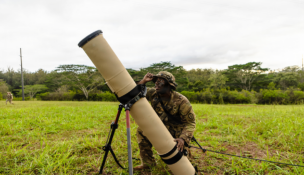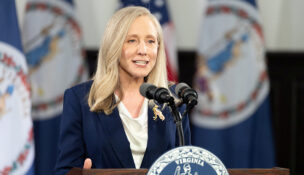Va. broadband goal includes access for all by 2027-2028
More than 162,000 homes and businesses lack high-speed internet
Va. broadband goal includes access for all by 2027-2028
More than 162,000 homes and businesses lack high-speed internet
A new five-year plan calls for connecting more than 162,000 Virginia businesses and homes that currently lack broadband access to high-speed internet by 2028.
On Friday, Gov. Glenn Youngkin released the plan, as well as volume 2 of the state’s initial proposal outlining its strategies under the federal Broadband Equity, Access and Deployment (BEAD) program. BEAD is a $42.4 billion national program to expand high-speed internet access by funding planning, infrastructure deployment and adoption plans under the federal Infrastructure Investments and Jobs Act.
Virginia’s allocation, which will be administered by the state Department of Housing and Community Development, includes $1.48 billion, of which $958.7 million will be spent to connect homes and businesses.
According to the plans, the state will use its BEAD money to work with local governments and internet service providers to “plan shovel-ready, universal broadband projects ready for funding,” as well as to remove barriers for special constructions costs for access to locations through line-extension programs by the end of 2024. The plan also includes goals of completing construction of BEAD-funded projects by 2027 to 2028, promoting the use of federal affordability programs by 5% to lower the cost of broadband services and conducting a needs assessment to develop programs to reach full adoption.
As of July, 384,475 households in Virginia were receiving $11.5 million in federal subsidies monthly toward the cost of broadband, but as many as 715,525 more households that could be eligible were not enrolled, and they’re missing out on more than $21 million per month.
“In today’s increasingly digital world, having access to high-speed broadband is no longer a luxury; it is necessary in order to fully participate in daily life,” Youngkin said in a statement. “I’m proud to share that the commonwealth is the first in the nation to release these plans and to strategize the effective utilization of these funds, ensuring that all Virginians are connected through broadband.”
The plans also say that extending broadband access will cost 50% more than anticipated as a result of inflation and because of federal requirements. The cost per location for the over 137,000 locations that could be served by multilocation deployments increased from $2,587 on average to $5,316; the cost for line extensions, which applies to about 15,000 locations, increased from about $6,142 to $9,113.
Since 2017, Virginia has allocated more than $935 million in state and federal funding to extend broadband infrastructure to more than 388,000 locations in 80 cities and counties, and those investments have brought in about $1.1 billion in matching funds from local governments and internet service providers.
DHCD is accepting public comment through Sept. 19 for volume 2 of its initial proposal. For more information and to submit comments, visit: dhcd.virginia.gov/vati
In 2021, former Gov. Ralph Northam pledged to provide broadband access across Virginia by 2024, accelerating by fours years his original pledge to achieve universal broadband access by 2028 because of an infusion of federal COVID-19 relief funding that Virginia received in 2020 and 2021.
-

















